Aside from the usual chicken feed and live bugs that chickens regularly enjoy, some people have wondered if freeze-drying food for their chickens as a treat would be a good idea. But is it even safe to feed our chickens freeze-dried food?
It is fine and safe to feed chickens freeze-dried foods (and insects) as a treat if they have sufficient clean water available on-demand. Freeze-dried foods should not be the flock’s main feed. Use freeze-dried foods as a treat or something to be mixed in with their regular food.
Just because it’s safe to feed our chickens freeze-dried food doesn’t mean all types of freeze-dried food are safe. This article discusses the healthiest freeze-dried food our chickens can enjoy and the recommended amounts. Following this guide will keep our chickens happy and won’t stop them from laying eggs – read on to find out how.
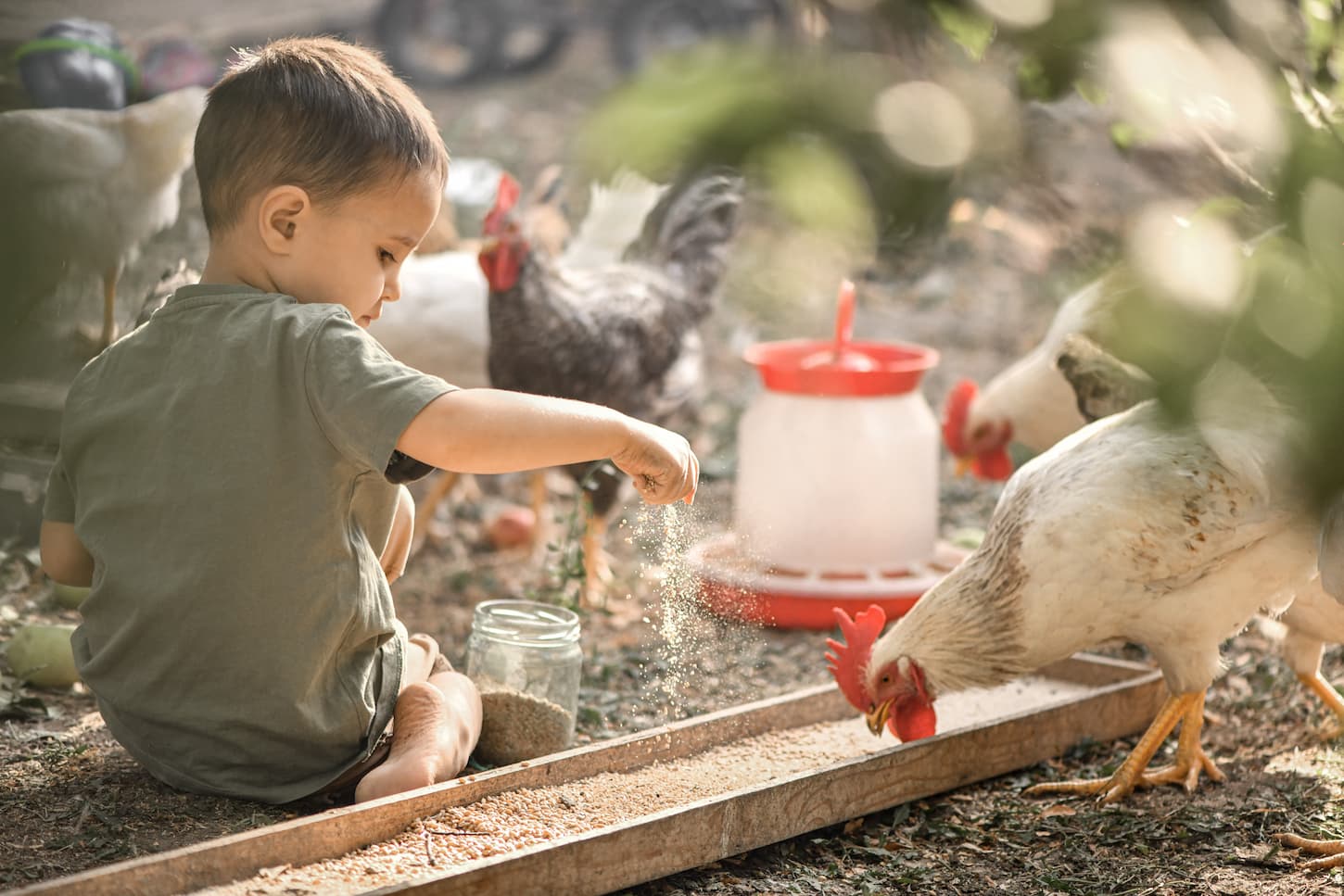
Can Chickens Eat Freeze-Dried Fruits?
It’s generally okay to feed chickens freeze-dried fruits. Just be careful of the types of fruit given to the chickens, sticking to fruits that are safe for chickens to eat. Rehydrating freeze-dried foods makes it easier for the chickens to eat and digest the food.
As chicken owners, we should take note of what type of freeze-dried fruit we are giving them. The rule of thumb is that if we shouldn’t give the fruit to the chicken while it’s fresh, we shouldn’t give it when freeze-dried.
If there are fruit peelings from an orange or avocado lying around, throw them in a compost bin.
Since fruits contain sugar, we should give them in moderation. If possible, treat the flock with a handful of freeze-dried goodies. If we are worried about the fruits not getting digested properly, we can add water or grind them into their daily feed.
Make sure that freeze-dried food is given as an occasional treat and regular food.
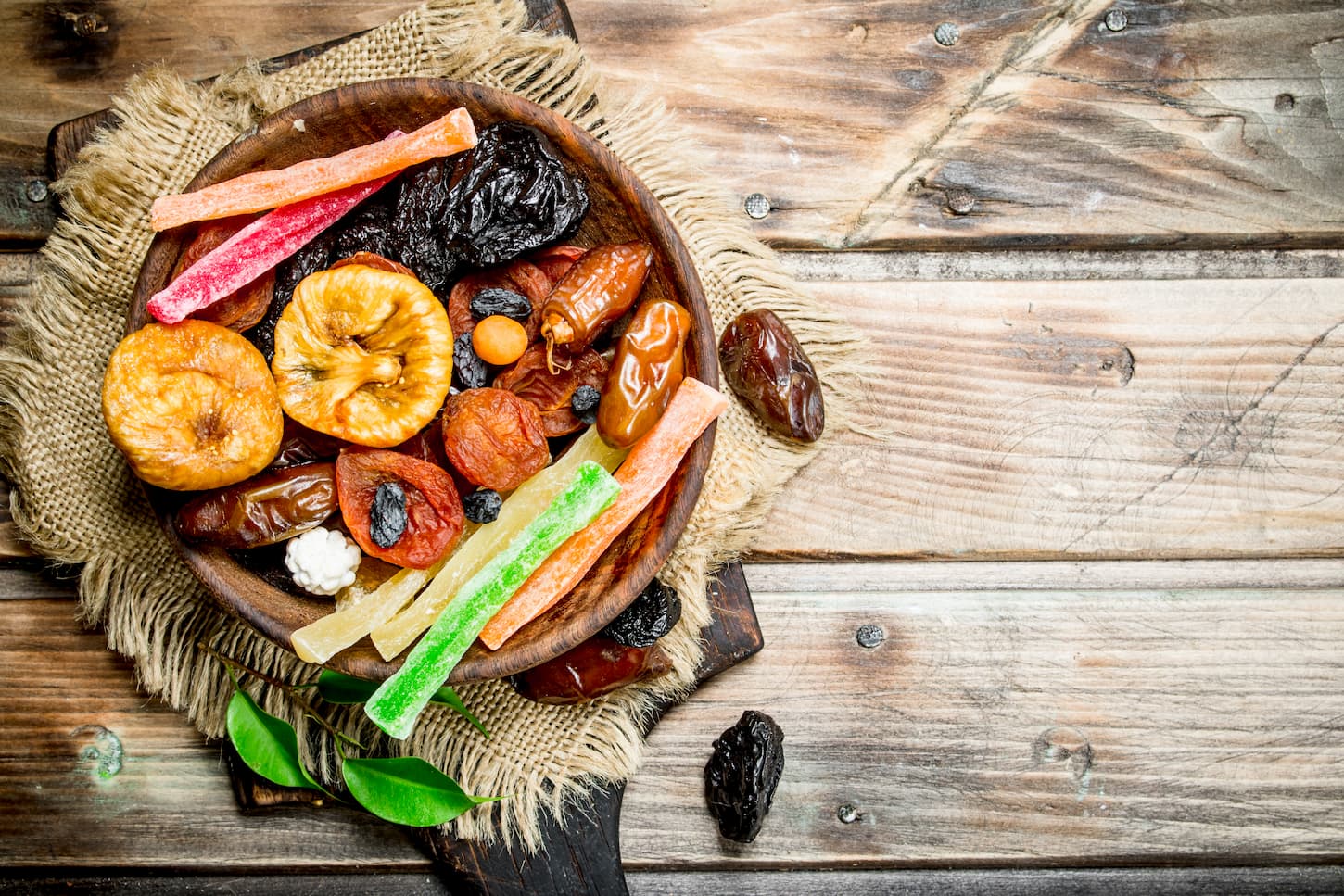
Can Chickens Eat Freeze-Dried Vegetables?
Freeze-dried vegetables are some of the safest foods for chickens. They can easily be mixed in with their food or fed as is. We can quickly provide our chickens with a handful or two of freeze-dried veggies daily. However, if the vegetable has skin, it’s best to peel it off.
Uncooked beans, freeze-dried or not, are also unsafe to feed chickens. But, other than that, most leafy green veggies will keep chickens happy and healthy. So, this is both tasty and healthy for them.
So, aside from being a treat, freeze-dried vegetables are an excellent way for them to get more nutrients.
However, if it’s affordable to give our chickens fresh vegetables daily, we recommend mixing them into their feed. But freeze-drying is a good option for the long-term storage of vegetables.
Can Chickens Eat Freeze-Dried Meats?
Chickens are omnivores, so it is safe to feed them strips of meat now and then as long as the meat is not too fatty. Freeze-drying meat is probably some of the safest meat for chickens since it doesn’t use additional salt or sugar for preservation.
Too much salt or sugar incorporated in meats could harm a chicken’s diet and may cause them to stop laying eggs. In addition to that, feeding chickens too much meat might cause them to become overweight, leading to egg-laying problems and illness.
Sometimes, to keep our chickens happy, we can feed them the scraps from our plates if we have a meal without sauces and preservatives. A typical treat that poultry farmers give is freeze-dried shrimp. We can feed them as is or rehydrate them.
We can give our chickens cooked freeze-dried meat over raw. However, the meat shouldn’t have any sauce or seasoning. Limit giving them meat and concentrate on bugs for more protein in their diet.
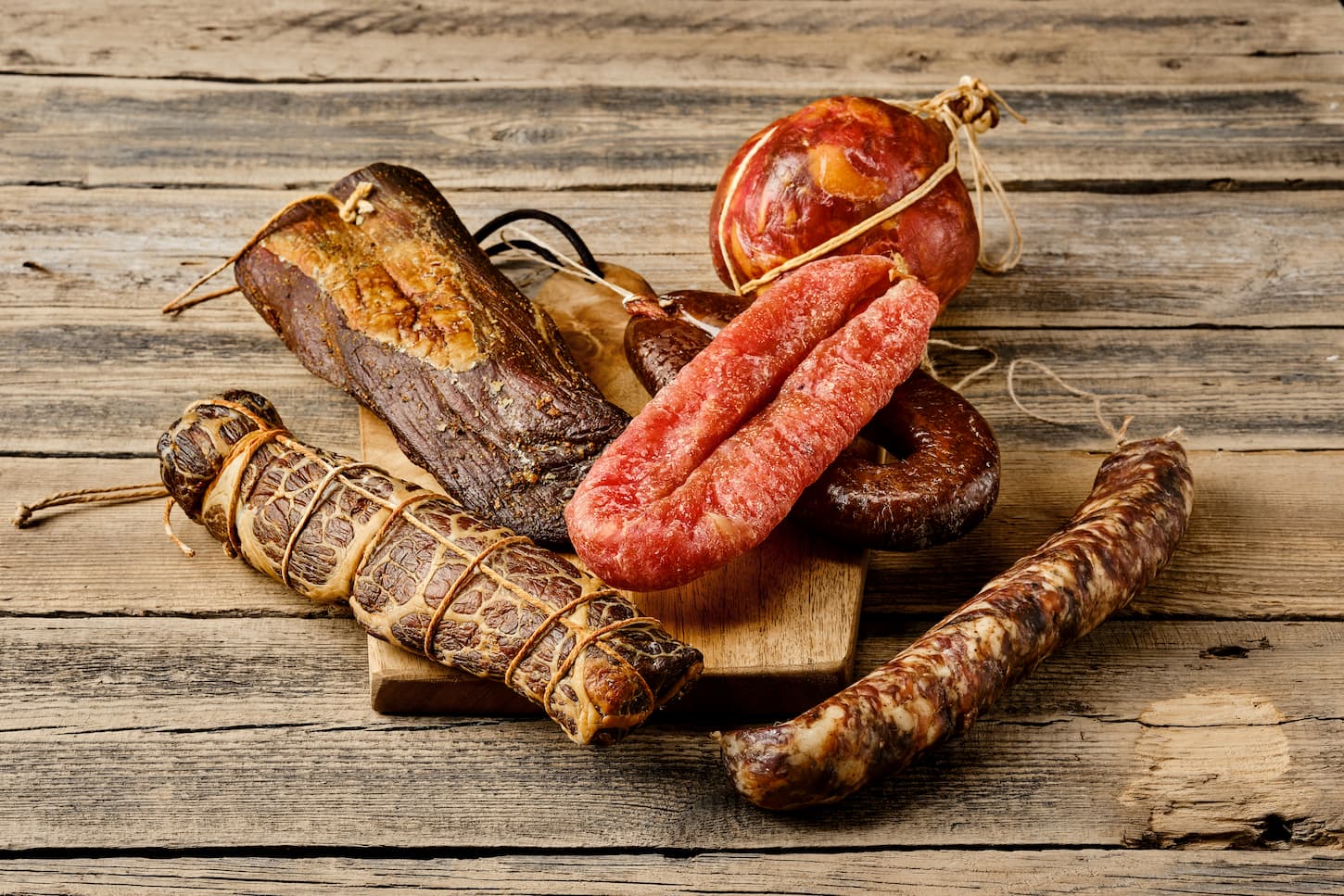
Can Chickens Eat Freeze-Dried Meals?
Giving chickens some freeze-dried meals is safe unless it has too many preservatives or any unsafe ingredients. Not all meals are harmful, but giving the flock single-ingredient foods and chicken feed is almost always healthier than giving them a rehydrated freeze-dried casserole.
A good freeze-dried meal we can feed our chickens is oatmeal. Oatmeal is something that both humans and chickens can enjoy. Freeze-drying will allow us to check the amount we give them for their treats. Then, we can crush them up or rehydrate them for our flock’s consumption.
A reconstituted freeze-dried lasagne, on the other hand? I wouldn’t feed that to my chickens unless there was literally no other option.
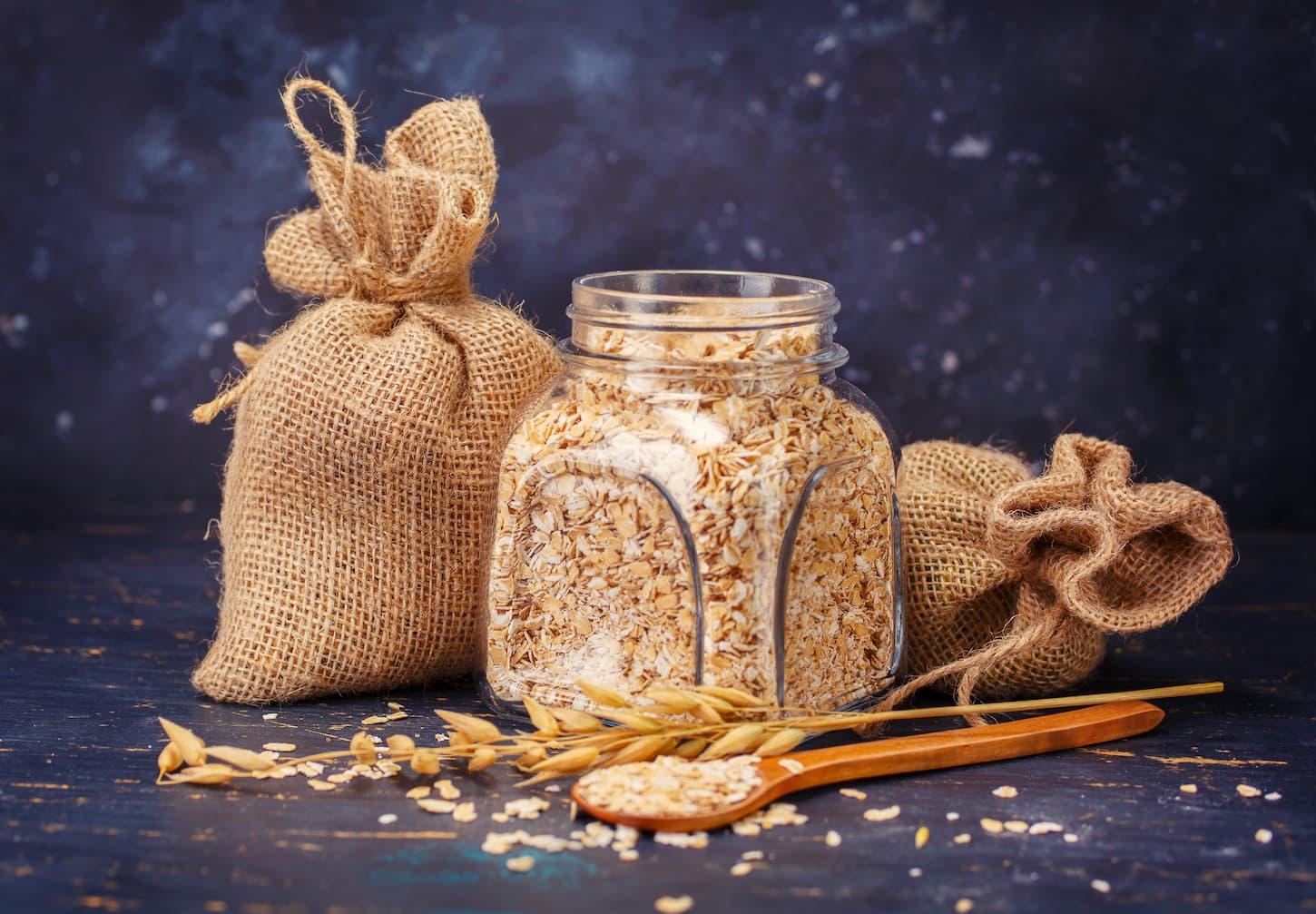
Can Chickens Eat Freeze-Dried Mealworms?
Mealworms are probably the most common freeze-dried goodies fed to chickens. They also pack a lot of nutritional benefits for hens, especially protein and calcium. Most chicken owners raise their own to save money, but freeze-dried mealworms are just as suitable otherwise.
We can feed a handful per chicken as a treat or crush enough to add to their feed. The benefit of freeze-drying mealworms is that it’s easier to grind them and incorporate them into our chicken diet.
However, overfeeding freeze-dried mealworms may affect how they lay eggs in the future, so only add them as a means of variety instead of an absolute staple in their meals.
Other freeze-dried bugs, such as crickets, are suitable for our chickens. However, if we buy freeze-dried insects instead of raising our own, make sure they come from a good farm specializing in producing dehydrated or freeze-dried insects for pet consumption.
Some farms feed their insect’s Styrofoam, which will affect the chickens eventually if they consume those bugs regularly.
You can read more about chickens and mealworms in our complete guide here.
Can Chickens Eat Freeze-Dried Eggs?
Eggs are safe to feed chickens if they are scrambled, freeze-dried, or powdered. Providing the chickens eggs might seem a bit odd, but it’s a healthy treat for them, especially during molting season due to the high protein content of eggs.
When chickens molt, it’s good to supplement them with extra protein and the other nutrients eggs provide.
Please make sure the egg is scrambled and cooked when feeding it to them. This is to prevent them from eating the eggs that they lay. We can also grind the freeze-dried scrambled eggs and add them to their feed to give them an extra boost of protein.
How much freeze-dried food can I give my chicken in a week?
We can give our chickens freeze-dried food daily. However, it’s essential to keep a 90/10 ratio with the feed. Ninety percent of our flock’s diet must be their standard chicken feed while allocating 10% of treats and supplements such as freeze-dried food.
Overfeeding chickens with treats will result in overweight chickens, compromising their egg-laying abilities. Chubby chickens may go from laying a lot fewer or zero eggs. Too many of the wrong treats may also alter the overall taste of the eggs laid.
We can have our chickens roam free if we want to treat our chickens daily but are worried about overfeeding them. They can find their favorite snacks on their own. When they forage themselves, chickens tend to avoid food that they know is bad for them.
If you want your chickens to eat a purely natural diet (without any commercial feed), make sure you read the complete guide to chicken nutrition here.
Feeding Chickens Freeze-Dried Foods FAQs
Now that we’ve covered the basics, there are a few more frequently-asked questions we should cover. Don’t see your question? Contact me and ask – so I can answer you and get it added here.
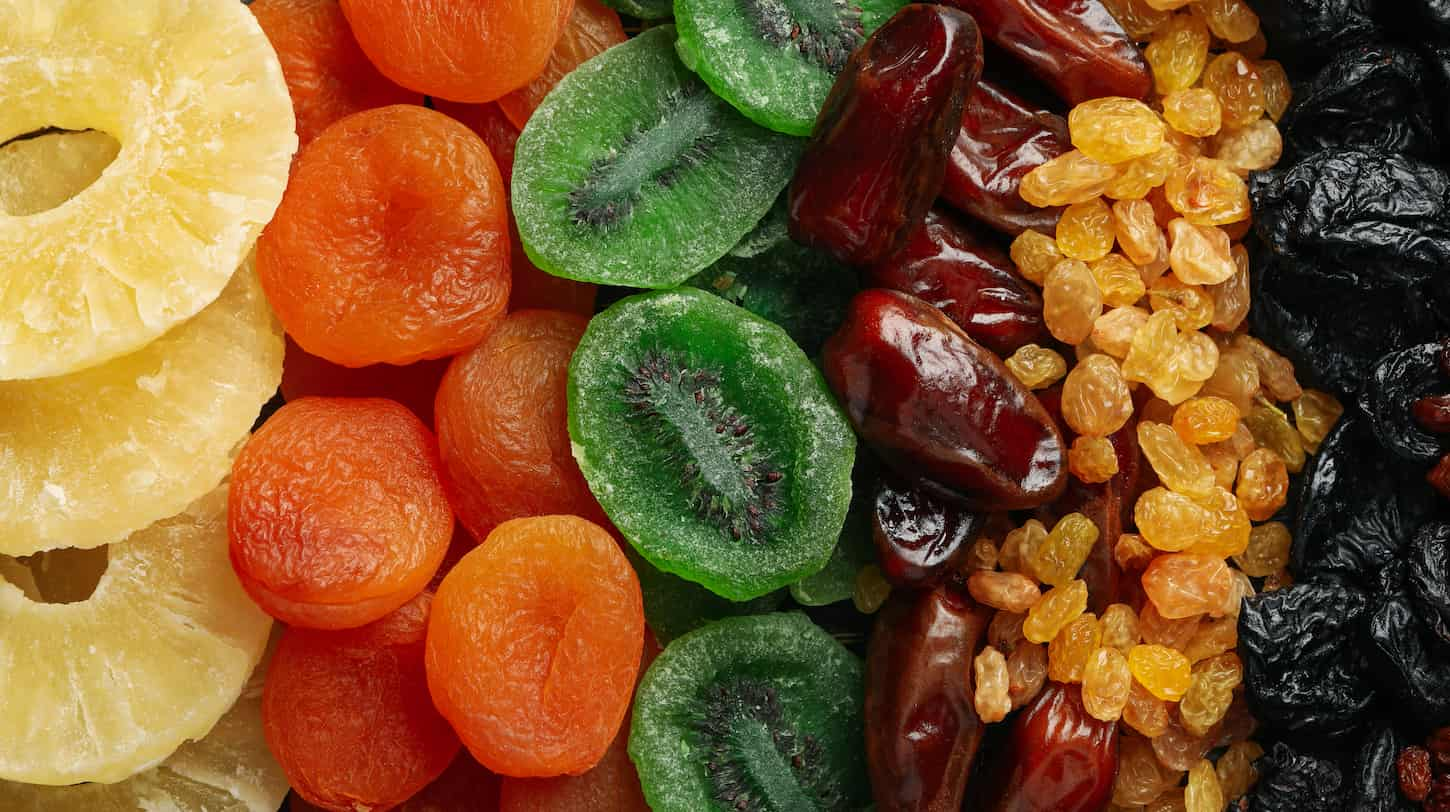
Are there specific freeze-dried foods I should avoid giving chickens?
If a chicken can eat fresh food, it can generally eat it freeze-dried. Avoid food that is bad for chickens even when it is fresh. For example, freeze-dried avocado flesh is fine to feed chickens if peeled and pit-free. Avocado skin and pits contain a toxin harmful to birds.
Here’s the list of What Chickens Can and Cannot Eat: Complete Guide we prepared for you. If it’s safe fresh, it’s safe freeze-dried.
Uncooked beans are also something we should avoid because of a compound they contain called hemagglutinin. However, if we want to introduce beans to our flocks, we should cook them before freeze-drying.
When feeding beans to the hens, either rehydrate or grind them up before putting them into their feed.
We should feed processed freeze-dried food in moderation. Too much salt, sugar, and preservatives in freeze-dried food can harm our pets. To add freeze-dried meals such as meats and oatmeal, do so a couple of times a month instead of daily.
Aside from meats and oats, freeze-dried carbohydrates such as rice and bread should be kept in moderation. It’s good to add starch into a chicken’s diet, but too much will compromise its health.
So, instead, freeze-dry cooked rice and bread, then rehydrate it when treating the flock.
We should avoid freeze-dried onions and garlic. While chickens sometimes eat these, they are the main culprit for lousy-tasting eggs. So, if planning on selling the flocks’ eggs, it’s best to avoid onions and garlic.
Again, here’s that link to What Chickens Can and Cannot Eat: Complete Guide we prepared for you. If it’s safe fresh, it’s safe freeze-dried.
Can I make supplement treats for my chickens using freeze-dried ingredients?
Freeze-dried vegetables, fruit, or insects that are safe for a flock to eat are excellent to add to their feed. First, freeze-dry them, or buy them already freeze-dried. After that, grind them into powder and add them to their feed. This will give chickens an extra bit of protein in their diet.
This is a clever idea if we notice that our flock needs extra nutrients. A good idea is to check to see if they are molting. If the hens start to molt, they need the extra protein to help them regrow their lost feathers.
Adding freeze-dried mealworms or crickets will help them get through that stage.
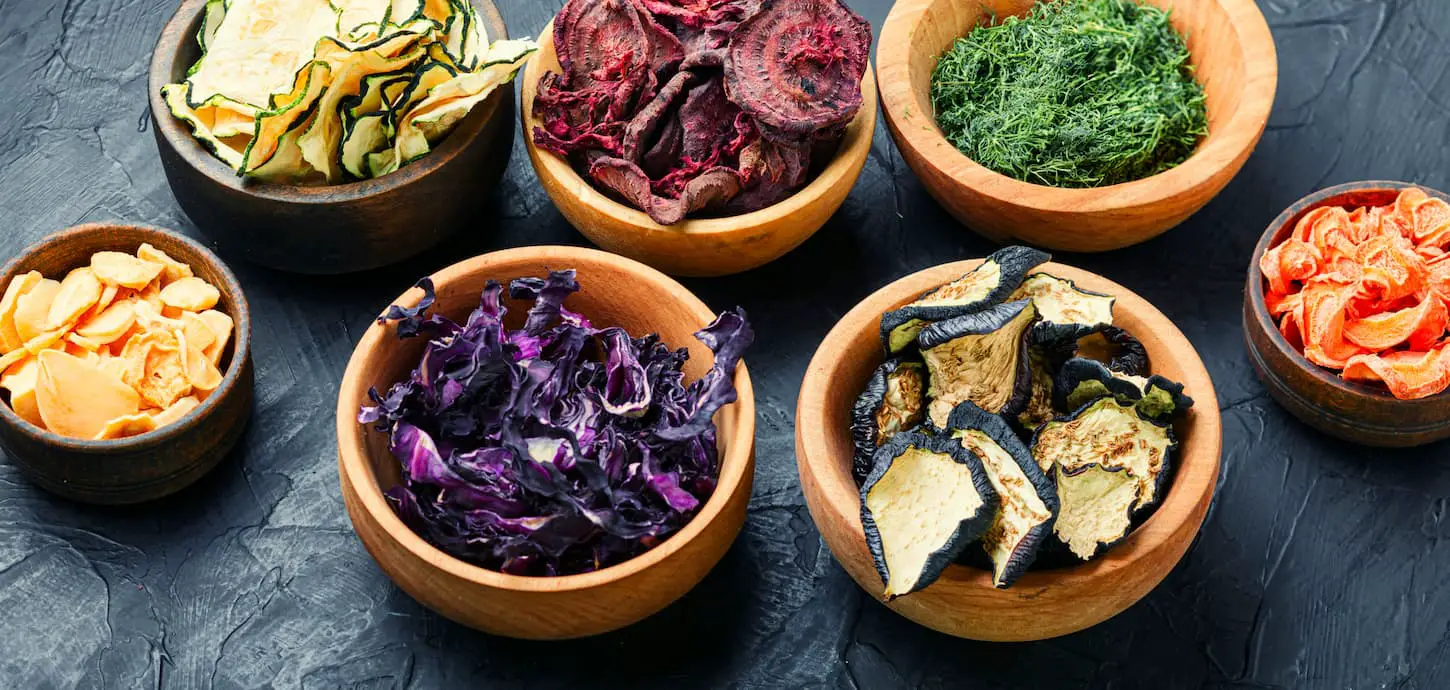
Key Takeaways and Next Steps
Feeding your chickens is an amazing way to bond with them. Plus, it’s fun to watch them eat!
Here are some more articles you can read here on BackyardHomesteadHQ.om about insects and chickens, including their freeze-dried versions.
- Can Chickens Eat Freeze-Dried Insects? (Crickets, Mealworms, Etc)
- How to Freeze-Dry Insects (Crickets, Mealworms, Worms, etc.)
Resources
It’s essential to learn from your own experience, but it’s also wise to learn from others. These are the sources used in this article and our research to be more informed as homesteaders.
- Caughey, Melissa. “Treating Your Chicken’s Right.” Mannapro, 2 Sept. 2015, www.mannapro.com/homestead/treating-your-chickens-right.
- Lesley, Chris, et al. “Table Scraps And Leftovers For Chickens: The Definitive Guide | Chickens And More.” Chickens and More, 4 June 2021, www.chickensandmore.com/table-scraps-and-leftovers-for-chickens.
And a huge thanks to our chickens for being the best flock ever – they’re always willing to try something new in the name of science and publishing on this website!